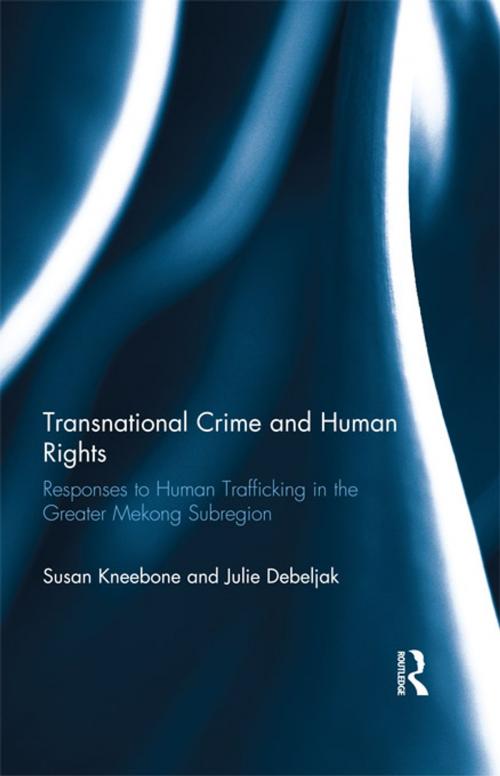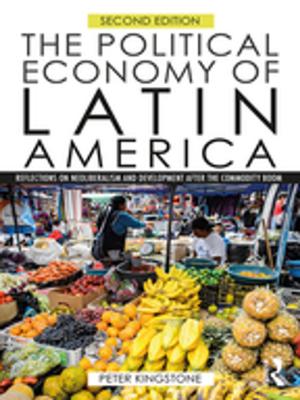Transnational Crime and Human Rights
Responses to Human Trafficking in the Greater Mekong Subregion
Nonfiction, Reference & Language, Law, Emigration & Immigration, International, Criminal law| Author: | Susan Kneebone, Julie Debeljak | ISBN: | 9781136336331 |
| Publisher: | Taylor and Francis | Publication: | August 6, 2012 |
| Imprint: | Routledge | Language: | English |
| Author: | Susan Kneebone, Julie Debeljak |
| ISBN: | 9781136336331 |
| Publisher: | Taylor and Francis |
| Publication: | August 6, 2012 |
| Imprint: | Routledge |
| Language: | English |
Transnational Crime and Human Rights offers an evaluation of the responses to the transnational crime of human trafficking and governance of the issue through a case study of the Greater Mekong Subregion (GMS), which comprises Cambodia, the People's Republic of China, Lao People's Democratic Republic, Myanmar, Thailand, and Viet Nam. The book analyses the international and national legal policy frameworks and the role of governments, international and national non-governmental institutions, and regional processes in responding to trafficking issues in the GMS. The book is based on the findings of a three year study conducted in the region, involving interviews with more than 60 individuals from relevant organizations and agencies, and examines the social, political and historical factors, including gender and age, labour exploitation and migration which form the background to human trafficking in the GMS. The authors consider issues of competing mandates, and gaps in strategies for protection and conclude with a discussion of broader lessons to be learned from the GMS situation and suggestions for future governance strategies in the fight against trafficking.
Transnational Crime and Human Rights offers an evaluation of the responses to the transnational crime of human trafficking and governance of the issue through a case study of the Greater Mekong Subregion (GMS), which comprises Cambodia, the People's Republic of China, Lao People's Democratic Republic, Myanmar, Thailand, and Viet Nam. The book analyses the international and national legal policy frameworks and the role of governments, international and national non-governmental institutions, and regional processes in responding to trafficking issues in the GMS. The book is based on the findings of a three year study conducted in the region, involving interviews with more than 60 individuals from relevant organizations and agencies, and examines the social, political and historical factors, including gender and age, labour exploitation and migration which form the background to human trafficking in the GMS. The authors consider issues of competing mandates, and gaps in strategies for protection and conclude with a discussion of broader lessons to be learned from the GMS situation and suggestions for future governance strategies in the fight against trafficking.















